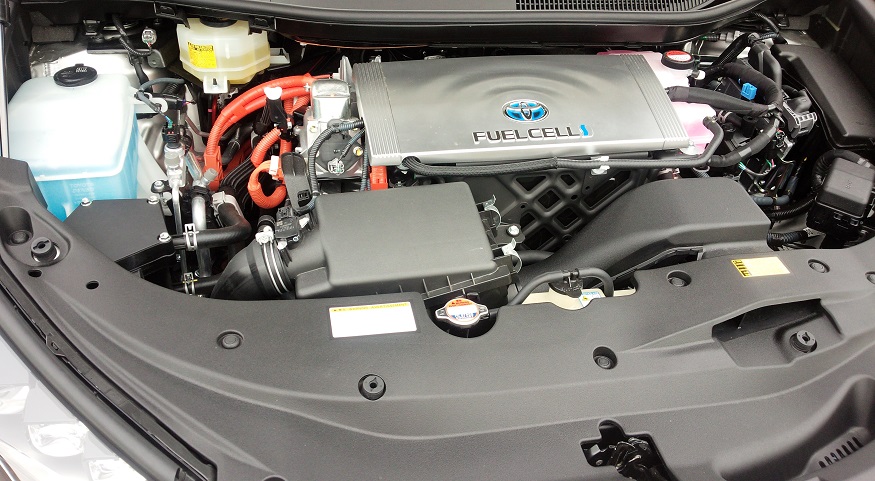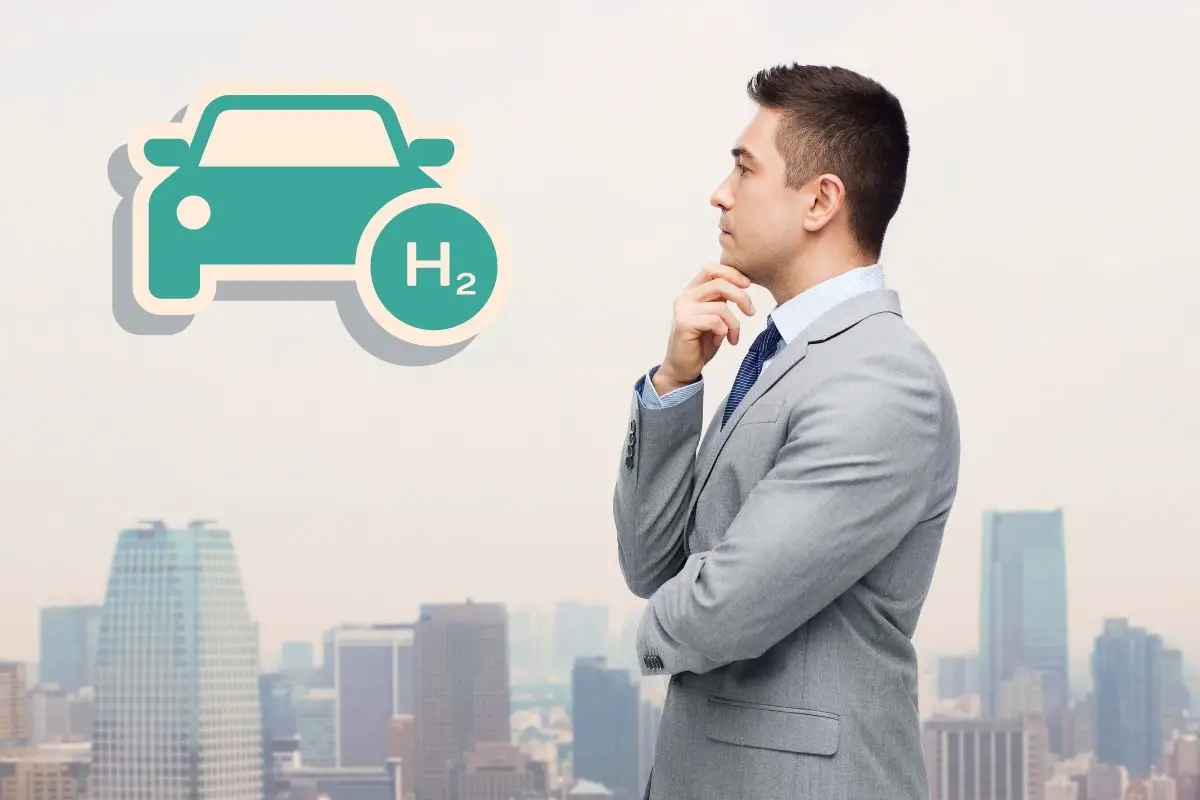
Top reasons many researchers prefer hydrogen fuel vehicles over EVs
December 30, 2020One of these renewable energies uses a gas or liquid while the other uses rechargeable batteries.
Despite the fact that EVs have experienced far more widespread adoption than hydrogen fuel vehicles, many researchers, engineers and environmentalists – as well as drivers – find the latter option more appealing.
Tesla and certain other electric vehicles have enjoyed a position among premium vehicle ownership.
That said, despite the fact that passenger cars like Tesla have become a status symbol, there is a growing movement that views hydrogen fuel cell vehicles as a more promising and viable option for zero emission cars.
The following are some of the top reasons that many researchers, environmentalists and others feel that H2 as renewable energy for a passenger car is a better option than a rechargeable battery.

These are some of the leading reasons many researchers prefer hydrogen fuel vehicles to EVs.
- No substantial lifestyle changes are required – EVs require recharging that can take a substantial amount of time (about 80 percent of a charge per half hour). This can take place only at recharging stations compatible with the make of the car and at home. Longer road trips require additional planning.
- H2 powered cars place less strain on the electric grid – Many regions across the US – and around the world for that matter – are already struggling to have their electrical grids keep up with the demand for power. Hydrogen powered cars don’t strain this situation further.
- They have a larger range – The typical electric vehicle such as a Tesla Y has a maximum range of slightly over 330 miles. These brands promise range getting closer to 400 miles – similar to gasoline-powered vehicle ranges – *Update 11/26/24 – EPA-estimated 76 city/71 hwy/74 combined MPGe for 2024 Mirai XLE and 67 city/64 hwy/65 combined MPGe for 2021 Mirai Limited. That said, H2-powered vehicles are already achieving ranges greater than 357 to 402 miles on a single tank. That said, when combined with the substantially shorter refilling time, the range within a span of time expands.
- Practicality for a larger range of vehicles – Hydrogen fuel cell cars can include anything from passenger cars to heavy-duty industrial or mining vehicles. It works with trains, buses, and researchers are working on aircraft as well. The high energy density and rapid refueling time means it provides potential for uses that require large amounts of energy and short refilling times.
Here’s Hyundai Ioniq vs Nexo FCEV to help your research need into fuel cell cars
The Toyota Mirai Record-Breaking Feat and What It Teaches Us
The Toyota Mirai set a Guinness World Record by driving an impressive 845 miles on a single five-minute hydrogen fill-up. This two-day journey through Southern California highlighted the groundbreaking potential of hydrogen fuel cell electric vehicles (FCEVs). Along the way, the Mirai emitted only water vapor, reaffirming hydrogen’s role as a clean and sustainable energy source.
This milestone not only showcases current efficiency but also hints at a future where hydrogen vehicles achieve even greater range, possibly surpassing gasoline-powered cars. With fast refueling and zero emissions, the Mirai points to an exciting future for sustainable mobility driven by hydrogen innovation.



 With over 15 years of reporting hydrogen news, we are your premier source for the latest updates and insights in hydrogen and renewable energy.
With over 15 years of reporting hydrogen news, we are your premier source for the latest updates and insights in hydrogen and renewable energy.
A range of 300 miles requires and EV to have around 700kg of battery to lug around. Also, range is reduced by hills, cold weather, having the heater /aircon on and as the battery ages. Ikg of hydrogen gives roughly the equivalent range as I gallon of petrol/diesel, so 10kg of fuel + 10kg of tank vs 700 kg of battery………..
Making a battery is very bad news for the environment as the Lithium ore has to be roasted at high temperature to extract the lithium. Using green energy to provide hydrogen has little negative impact. Powerhouse plc (PHE) has the technology to extract hydrogen electricity and heat from plastic waste – killing 4 birds with one stone.
Inasmuch as hydrogen vehicles really have not been sold in any quantity at all, and there are essentially no hydrogen re-fueling stations at all, these ‘reasons’ are all speculation about some possible future. This is not research.
1) The recharging time is a complaint that is seldom an issue. Who drives over 200 miles per day? Charging overnight at home beats going to a gas station, and paying big bucks for gas or hydrogen.
2) Making green hydrogen is an inefficient energy process. Hydrogen will increase the strain on the grid.
3) Tesla is already getting ready to deploy much faster DC charging stations. On a 300 mile trip, a short charge time is a nice break. Long trips requiring a fast charge are only done a small fraction of the time.
4) Hydrogen may have a special market for some transportation needs.
The Achilles heal for hydrogen is the inefficiency. Hydrogen fuel will always be more expensive than battery storage.
Amazed that’s nothing is said about how volatile hydrogen gas is, if stored in volume in tanks this remains an issue, especially with auto transport, accidents with volumes of gas will create a major issue in safety, remember that hydrogen is nature’s most volatile gas, erupts progressively and would be
a disastrous scenario for emergency efforts and worst for the occupants in a given area, this gas drove the reaction process for the first nuclear bomb, is highly passive in ignition and output making volumes in carting a highly hazardous process, manufacturing on the run has its drawbacks as well, everything practically equals out in manufacturing energy, costs in everything, fossil to solar etc
300 miles is already well beyond typical bladder capacity, and after 5 hours plus of driving, who does not want a break to eat something, and have a walk around! For the vast majority of users, trips exceeding the battery capacity of an EV are a rare occurance, whilst battery energy density and range keep improving, and capital costs keep dropping! We are a long way from an affordable hydrogen fuel cell vehicle, and an even longer way from a comprehensive hydrogen infrastructure to support such.
I am in favor of BEVs, but I have never understood the “bladder capacity” argument. My road trip SUV of choice happens to have about a 500-mile range. But there has never been a correlation between range and “bladder capacity”. Many travelers take a 5-10 minutes rest break, including yours truly, every couple of hours or so, about 140 miles…..often hours before they need to refill. This most often has nothing to do with the urge “to go” or to fuel the car. It’s about taking a quick stretch break that may or may not coincide with using the restroom. And it certainly most often does not coincide with needing gas because rest stops generally don’t have gas pumps.
Probably the biggest factor necessitating stops is family members needing to stop, for any number of reasons (food, pit stop), sometimes with urgency. Again nothing to do with locating a DC charger or the gas pump. Range related “bladder capacity” and “range anxiety” were ushered in the past decade with the introduction of BEVs.
What are the best Hydrogen fuel cell companies to invest in.
Hydrogen generation should be using green resources like renewables , if electricity has to be used for generation that should also be from. non-fossil fuels, otherwise emission cannot be controlled. More Green hydrogen than blue hydrogen for hydrogen fuel cell vehicles. The exhaust water from these vehicles should should be recycled, if possible. DrGoms